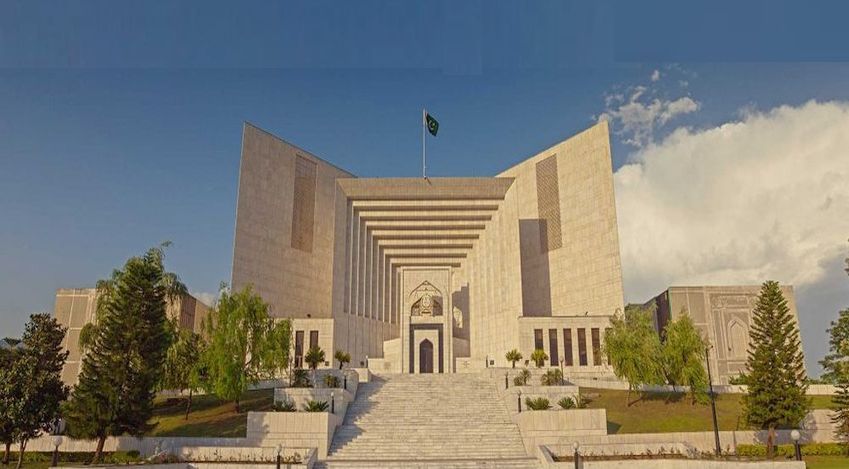Specific Performance is not an Absolute Right and may be denied if Equity does not favor the Plaintiff --- Supreme Court of Pakistan
Islamabad 08-10-2024: The Supreme Court of Pakistan has dismissed an appeal seeking specific performance of a property agreement, affirming the decision of the Islamabad High Court which had set aside the Trial Court’s decree. The case, titled “Ufaid Gul vs. Mst. Farkhanda Ayub Khan and others” [Civil Appeal No. 785 of 2022], involved a complex procedural history, with the Apex Court citing contributory negligence by both the litigants and the Lower Courts as a key factor in its ruling.
The appellant had filed a suit for specific performance on 30.04.2013, based on an agreement to sell dated 06.11.2012 for House/Plot No. 10, Street No. 40, Sector G-10/4, Islamabad. The total consideration was Rs. 1,65,00,000/-, out of which Rs 5,00,000/- was paid to the respondent. However, it was later revealed that the agreement was made with a party (defendant No. 1) who was not the true owner of the property, making the suit against the actual owner (defendant No. 2) legally unsustainable.
The Trial Court had initially decreed the suit in favor of the plaintiff, but this decision was overturned by the District Judge (West), Islamabad, who found that the plaintiff had no grounds for specific performance against the actual owner. The District Judge, however, ordered a refund of Rs 10,00,000/- to the plaintiff. This ruling prompted multiple appeals and revisions by all parties involved, culminating in a High Court decision to set aside the Trial Court’s decree.
The Supreme Court upheld the High Court’s judgment, highlighting the discretionary nature of granting specific performance. The Court found that specific performance is not an absolute right and may be denied if equity does not favor the plaintiff. The Court noted that in this case, the plaintiff entered into an agreement with a party who had no authority over the property, thereby disentitling the plaintiff from the relief sought.
A significant aspect of the Supreme Court’s decision was its application of the doctrine of contributory negligence. The Court found that both the appellant and the Lower Court contributed to the procedural misstep. The initial appeal was filed before the Additional District Judge (West), Islamabad, who lacked the pecuniary jurisdiction to entertain the case. The Supreme Court observed that the Lower Court’s failure to promptly raise the issue of jurisdiction contributed to the delay and procedural confusion.
Citing “Sherin and others v. Fazal Muhammad and others” (1995 SCMR 584) and “Ghulam Ali v. Akbar alias Akoor and others” (PLD 1991 SC 957), the Supreme Court held that the resulting delay should not prejudice the respondent’s rights. It emphasized that no party should suffer due to the act or mistake of the Court, a principle encapsulated by the maxim "an act of the Court shall prejudice no one."
This ruling reaffirms the discretionary nature of specific performance and establishes a clear precedent on handling procedural delays caused by jurisdictional errors. It serves as a cautionary reminder for litigants and Courts alike to ensure that cases are filed and entertained in the appropriate forum to avoid unnecessary delays and complications.
The Supreme Court’s decision to dismiss the appeal, while upholding the High Court’s ruling, underscores the judiciary’s commitment to equitable justice, ensuring that procedural technicalities do not override the substantive rights of parties involved.
The appeal was dismissed, with costs throughout.
Powered by Froala Editor








